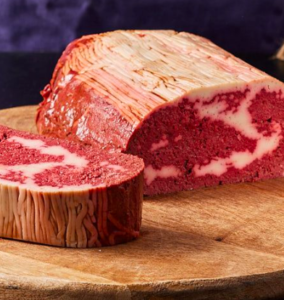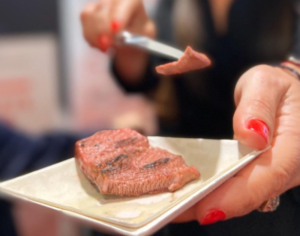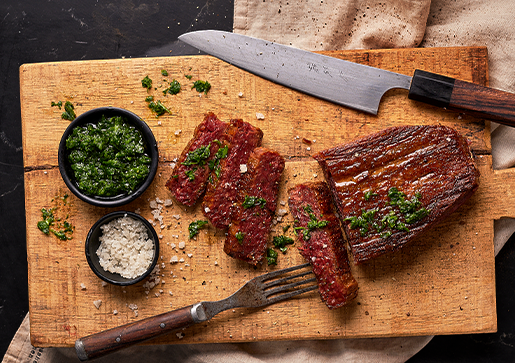There is an ongoing concern about the ill-effects of animal meat on human health and global climate. Factory farming is criticised for its overuse of land, water and uncontrolled greenhouse gas emissions.
As consumers seek to cut their consumption of animal derived products due to health, environmental or ethical reasons, the alternative meat industry is booming and currently eyeing an 8.8 billion projection by the year 2026.
Vegan sausages, vegan chicken and beef ground, and burger patties have been in the market for a while, but steaks are still an untapped area. Recreating the complex structure, alternating between muscle and fat is no easy feat.
Enter 3D printed meat, a cruelty-free method to produce meat substitutes!
Using a 3D printing method, whole cut meat prototypes are created from adding lab grown mammalian fat cells to a vegan scaffold, or a plant-based paste is used to create an ink and print out complex muscle and fat mass.
To create the marbled fat and fibrous protein texture, scientists are harnessing an innovative technology called micro-extrusion. The process involves producing 100-500 micrometer wide fibers, containing different ingredients and assembling them together to create structured meat.



Plant-based 3D printed meat is nutrient-dense and derives its protein from grains and legumes. Natural flavours and colours, like beet root juice are further added to mimic the succulence and texture of conventional meat.
Today, several companies have started using 3D printing to create alternatives for meat. Redefine Meat, a food tech company based in Tel Aviv, Israel, is going to roll out its 3D printed meat in Israel, Switzerland and Germany towards the third quarter of this year before making its way towards US and Asian markets. The start-up raised over $29 million in a series A funding. Redefine Meat is hopeful that their patented manufacturing technology replicates the steak structure completely and aims to sell their cartridges and printers to meat distributors globally.
MeaTech and Aleph Farms are two other Israel-based companies that are creating waves with their 3D printed structured meat using cultured cells. Aleph Farms created a lab-cultivated steak using meat cells which comes with the taste and texture of meat without the need to slaughter animals.
Spanish company Novameat is harnessing tissue engineering technology and advanced food printing to produce hyper-realistic 3D printed vegan steaks. Currently the company is eyeing a 2022 launch.



Today, animal agriculture takes up 77% of all agricultural land, consumes 8% of worlds freshwater and uses 33% of croplands. Moreover, traditional meat is loaded with saturated fats and cholesterol and hosts a lengthy portfolio of diseases including heart ailments, type-2 diabetes, obesity, high blood pressure and even certain cancers.
On the other hand, plant-based meat is environmentally sustainable, cuts off emission of greenhouse gases by 30-90% and with it, all the health risks associated with its conventional counterpart too.
It is truly the food from the future, produced to conserve the present.



